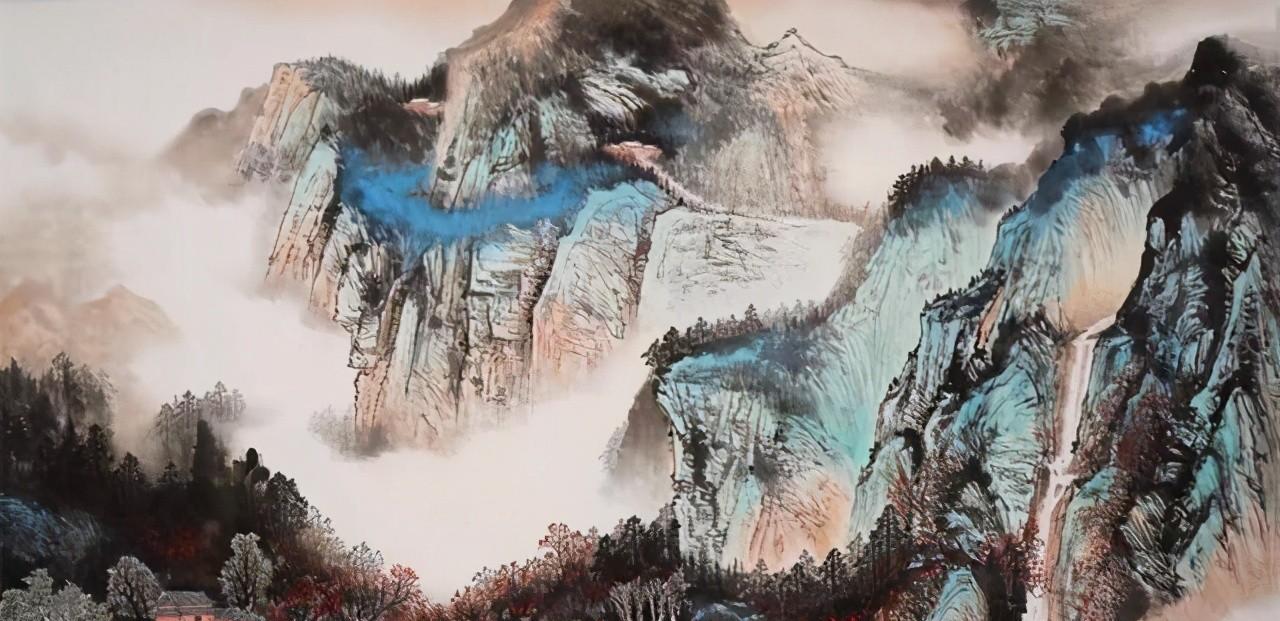We want to understand the study of Chinese painting theory knowledge, through some subtle observations to find out that the understanding is not subtle academic truth, the name of the name, alias is not the road of the country, but the Chinese literati are happy to do it, since the Yuan, Ming, almost no nameless, no one numberless. Moreover, the ancients took names and numbers not to "wine"—they were pretending to be personal interests in life, so the study of this universal phenomenon that has lasted for two thousand years has an extraordinary significance. These names and numbers are like a window, from which you can glimpse the sentiments of the ancients and understand the nature and quality of Chinese painting and calligraphy.

The name of the zhai is different from the name of the imperial palace, but the name of the zhai may originate from the habit of the royal family, because the earliest name of the zhai is Wei Liu Teng's Liangfeng Hall, and before that, the palaces of the Qin and Han dynasties already had names. During the Zhao and Song dynasties, each room of Guoxue was named after two characters, and the titles of the books were all masters of the time, but these names were all philosophical precepts for the purpose of warning students (see Wu Zimu's "Record of Dreams"). The name of the literati, on the other hand, is a manifestation of temperament, and its intentions are not practical, but in the manifestation of a disposition. Therefore, such names and numbers cannot be regarded only as the titles of the house and individuals.
For example, Mi Yuanzhang named his son "Youren", which is a warning from a father to his son that he hopes that his son will be "friendly" to "Ren". Mi Youren's milk name Yin Ge, Ao'er, Tiger Er, just love to call, born in "Yin", so "Yin Brother", its sex is extraordinary, so it is jokingly called "Ao" and "Tiger". However, Mi Youren calls himself a "lazy old man" and "lazy is his own temperament." However, it is difficult for people today to understand the true meaning of the ancient name, and the "lazy" of millet is "lazy" in the world, "clumsy" in the world, not really lazy and really clumsy. This is just like Huang Gongwang's self-proclaimed "great idiot Daoist", but he is not really "stupid". In addition to the bitter melon monk, he is also known as Zhixia Shuo, Ah Chang, Blunt Root, Mountain Passenger, Jishan Monk, Shi Daoren, Dadizi, Qingxiang Old Man Qingxiang Remnant, Blind Venerable, and Old Man Zero Ding.
According to the "Index of Room Names and Numbers" compiled by Mr. Chen Naiqian, the names and numbers are roughly classified as follows:
The first shows the ambition of seclusion, such as "mountain people", "scattered people", "Taoist people", "monks", "monks" and the like.
The second category shows personal exercises under the name of Jiamu Yihui, which mostly uses "plum" bamboo, "pine", "chrysanthemum" and the like. #文化 #
The third category is the self-vigilance and self-vigilance of aphorisms and philosophies, such as Su Shi calling himself Qizhai "Thinking Innocence", and Zeng Guofan calling Qizhai "the room of cultivating virtue and nurturing the body". Zhu Changyan of the Qing Dynasty named his room "Chaojing Twilight History Day and Night Collection Building".
The fourth category of people who imply their own experiences by name and number, such as Zhu Yun's self-titled "Eight Mountain People" (these four characters are written in cursive, the class "Weeping laughter"), Shi Tao traveled to Nanjing, got a long pole, and called himself "Zhixia Shuo", Bai Shi's old man was fond of stones, so he called himself "Three Hundred Stone Seal Rich Man", and the Qing Dynasty's interpretation results summarized his experience with twenty-seven characters, and his number was "Ten Thousand Miles Walking Monk Xiaofushan Chang tong the world's famous mountain wind and moon and the reasoning of the immortal crane grain and not waking up the township marquis", which is the most used word in the "history of the trumpet". Huang Xiexi, a Qing dynasty, called himself "I am a sentimental and sickly body."
The fifth category of Xuanyu Zen is numbered, and most of these are called "Too Virtual", "QingXuan Xuanxuan", "Danqiu" and the like
To examine these names and trumpets as a display of cultural trends of thought, we can know the spiritual character of an era. Looking back at the history of Chinese painting, the quality of Chinese painting can also be understood. Author: Jiang clarified